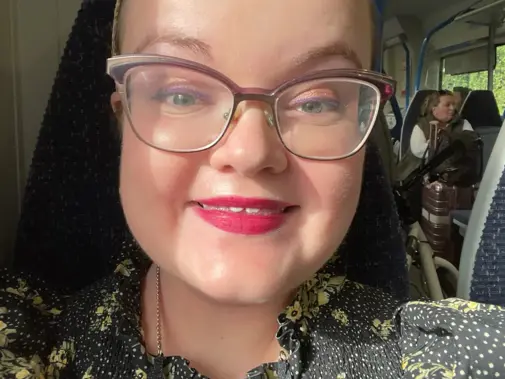What is self-care? The World Health Organisation defines it as ‘the ability of individuals, families and communities to promote health, prevent disease, maintain health, and cope with illness and disability with or without the support of a health worker' (1).
Self-care techniques, when adopted and supported optimally, allow for individuals to manage their own care in areas such as health promotion, disease prevention, and self-medication and has been shown to lead to a better quality of life and fewer hospitalisations (2).
Self-care means many things to different people. For some self-care may be doing physical exercise such as going for a walk or making sure to stay hydrated. For others it is ensuring they take all their medications and have a good night’s sleep.
It can also be a way of empowering individuals to care for themselves or support those in their community to be more independent. For me, self-care includes working from bed if I’m having a flare up of my condition, painting my nails, and re-watching my favourite films.
Whilst there are undoubtedly many benefits to the practice of self-care, it is not a substitute for medical care. Despite the limitations of healthcare financing and resources, self-care must take place alongside, not instead of, medical care.
It is also important to remember that even if people have responsibility for their own individual health, this is not the same as having control over societal factors that impact our health. Self-care is difficult, if not impossible, without adequate housing, benefits, financial security, and education. Not everyone has the resources to engage in meaningful self-care activities.
Unfortunately, these societal and individual barriers to self-care are not always obvious. Patients have been accused of not engaging in self-care, and of not trying hard enough to get better. This can often be the case for people with chronic pain conditions, who may be told they are not exercising enough or an assumption that if they lost weight their condition would automatically get better.
There are complex reasons why people may not be able to follow self-care guidance and, for example, genetics, housing, long working hours, unsupportive workplaces, inability to take time off work, the demands of education, family demands, and just life in general and it may not be a priority for them now.
Self-care needs to be accompanied by a culture of support, not blame. On top of this, ingrained fatphobia in the medical system which leads to negative attitudes towards patients who are overweight can lead to poor adherence to medication and long term-health outcomes overall (3). If self-care is to be effective, there is an overwhelming need to overcome weight stigma in healthcare.
Although many self-care activities may seem low cost to begin with, there may be hidden costs for an individual who may be unable to get out of bed the next day, or focus on work, because of undertaking self-care activities. When you spend a lot of your time in pain it makes self-care more of a challenge.
Pain, depression, brain fog and fatigue among other things can make it hard to do even tasks some see as easy such as having a shower. These self-care activities can even exacerbate symptoms which is why, if self-care is to be used alongside medical care, it must be tailored to the individual.
For patients with chronic long-term conditions, it is vital that self-care interventions include support for both the physical and psychological impacts of their condition. (4)
This self-care week, I’d also like to celebrate community self-care. In the pandemic, we wore masks around friends, we participated in mutual aid groups, and we did other people’s food shops. If we are to live in a society that supports all those living with illness, long-term conditions, and disabilities self-care must be equitable, collectivist, and not reserved for only those who have the most resources, education, and confidence to practice it.
Self-care week (13-19 November) is the annual UK-wide national awareness week that focuses on embedding support for self-care across communities, families and generations. Find out more about self-care week.
Emma Beeden (she/her) is a patient advocate and member of the Patient Liaison Group. She is also a queer disabled woman who has experience of paediatric and adult healthcare services due to having a kidney transplant, dwarfism and chronic psoriasis
(1) https://www.who.int/health-topics/self-care#tab=tab_1
(2) Jonkman, N. et al. (2016) ‘Do Self-Management Interventions Work in Patients with Heart Failure? An Individual Patient Data Meta-Analysis’, Circulation, 133(12), p. (1189-1198). DOI: https://doi.org/10.1161/circulationaha.115.018006
(3) Talumaa, B. et al (2022) ‘Effective strategies in ending weight stigma in healthcare’ Obesity, 23(10), p. (1-16). DOI: https://doi.org/10.1111/obr.13494
(4) Riegel, B. (2021) ‘Characteristics of self-care interventions for patients with a chronic condition: A scoping review’, International Journal of Nursing Studies, 116, p. (1-10). DOI: 103713

